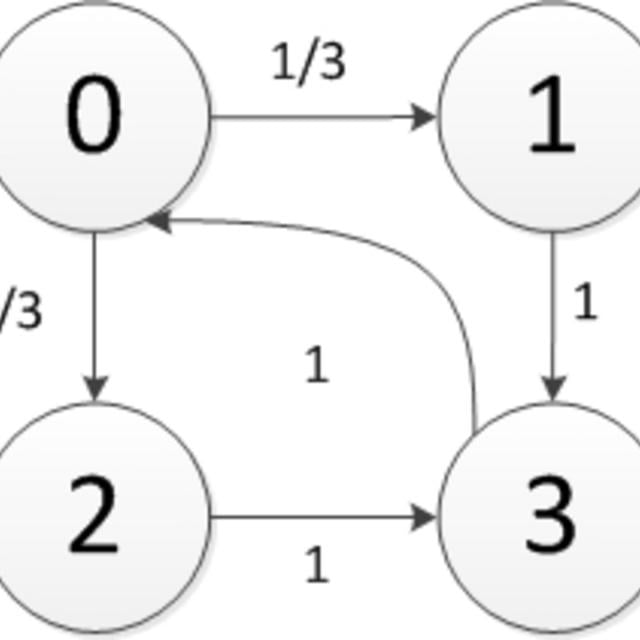MOOC List is learner-supported. When you buy through links on our site, we may earn an affiliate commission.

MOOC List is learner-supported. When you buy through links on our site, we may earn an affiliate commission.
First, a model of the real system has to be built. In the simplest case, the model reflects all possible states that the system can reach and all possible transitions between states in a (labelled) State Transition System. When adding probabilities and discrete time to the model, we are dealing with so-called Discrete-time Markov chains which in turn can be extended with continuous timing to Continuous-time Markov chains. Both formalisms have been used widely for modeling and performance and dependability evaluation of computer and communication systems in a wide variety of domains. These formalisms are well understood, mathematically attractive while at the same time flexible enough to model complex systems.
Model checking focuses on the qualitative evaluation of the model. As formal verification method, model checking analyzes the functionality of the system model. A property that needs to be analyzed has to be specified in a logic with consistent syntax and semantics. For every state of the model, it is then checked whether the property is valid or not.
The main focus of this course is on quantitative model checking for Markov chains, for which we will discuss efficient computational algorithms. The learning objectives of this course are as follows:
- Express dependability properties for different kinds of transition systems .
- Compute the evolution over time for Markov chains.
- Check whether single states satisfy a certain formula and compute the satisfaction set for properties.
Syllabus
WEEK 1
Module 1: Computational Tree Logic
We introduce Labeled Transition Systems (LTS), the syntax and semantics of Computational Tree Logic (CTL) and discuss the model checking algorithms that are necessary to compute the satisfaction set for specific CTL formulas.
WEEK 2
Discrete Time Markov Chains
We enhance transition systems by discrete time and add probabilities to transitions to model probabilistic choices. We discuss important properties of DTMCs, such as the memoryless property and time-homogeneity. State classification can be used to determine the existence of the limiting and / or stationary distribution.
WEEK 3
Probabilistic Computational Tree Logic
We discuss the syntax and semantics of Probabilistic Computational Tree logic and check out the model checking algorithms that are necessary to decide the validity of different kinds of PCTL formulas. We shortly discuss the complexity of PCTL model checking.
WEEK 4
Continuous Time Markov Chains
We enhance Discrete-Time Markov Chains with real time and discuss how the resulting modelling formalism evolves over time. We compute the steady-state for different kinds of CMTCs and discuss how the transient probabilities can be efficiently computed using a method called uniformisation.
WEEK 5
Continuous Stochastic Logic
We introduce the syntax and semantics of Continuous Stochastic Logic and describe how the different kinds of CSL formulas can be model checked. Especially, model checking the time bounded until operator requires applying the concept of uniformisation, which we have discussed in the previous module.
MOOC List is learner-supported. When you buy through links on our site, we may earn an affiliate commission.
MOOC List is learner-supported. When you buy through links on our site, we may earn an affiliate commission.
